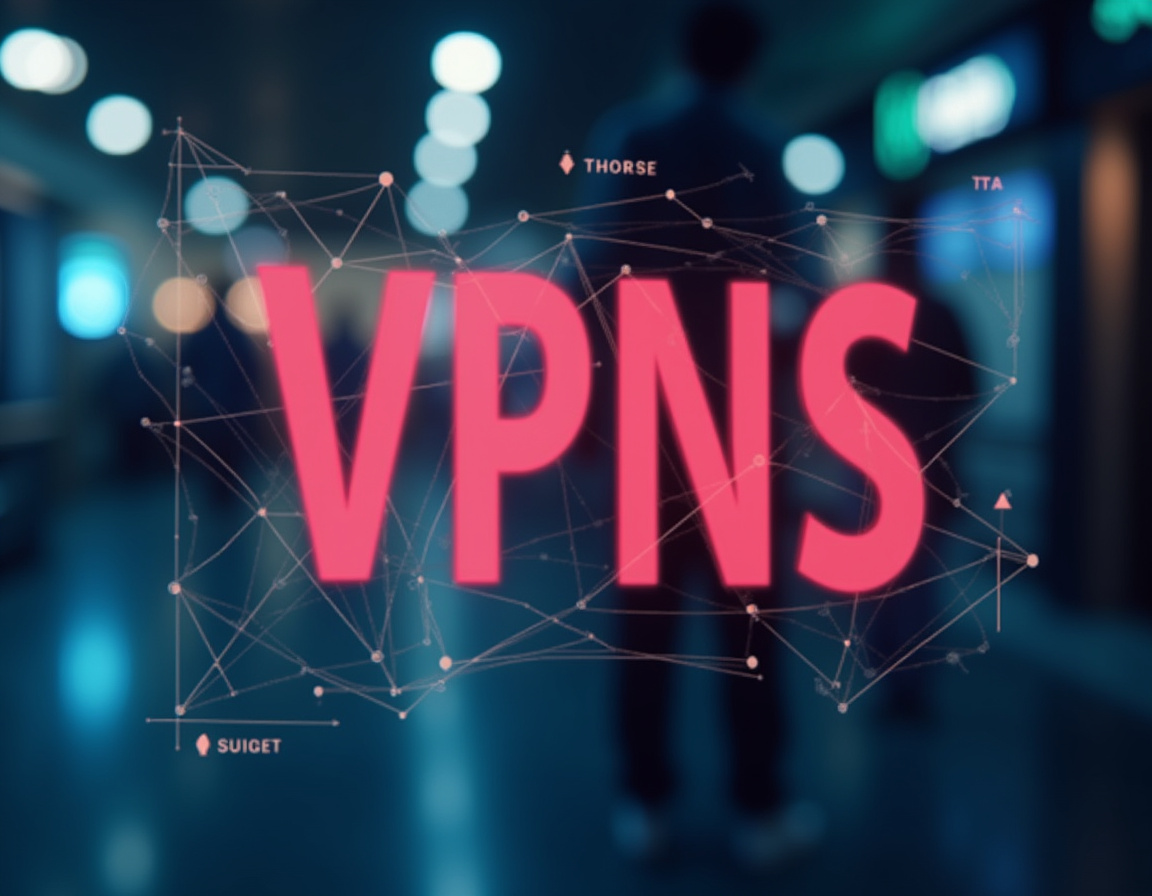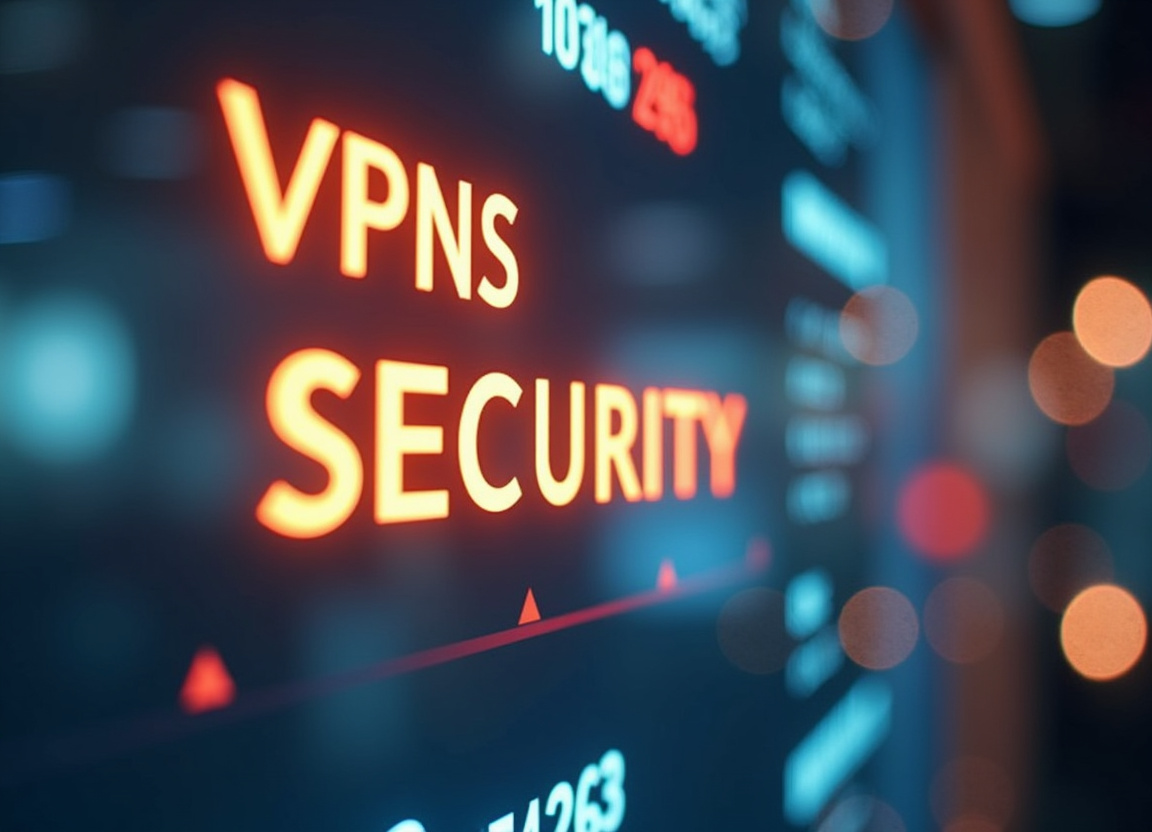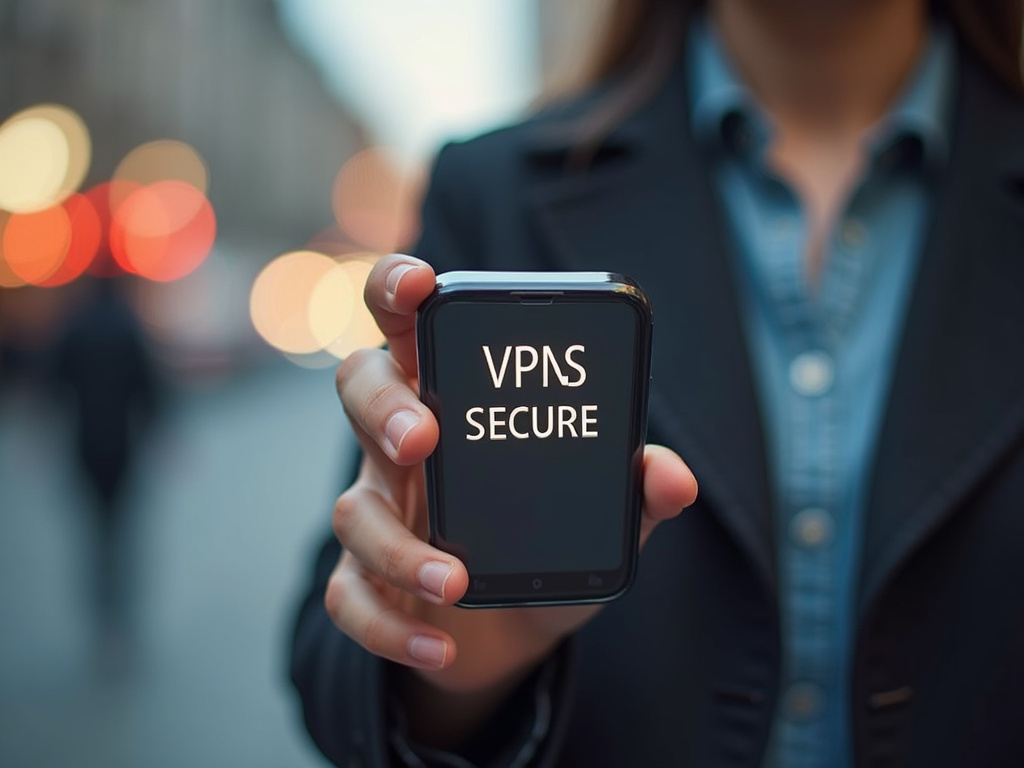VPNs for Retail Pharmacies: Securing Customer Information

Table of Contents
Protecting Patient Data: The Critical Need for VPNs in Pharmacies
In the intricate web of modern healthcare, retail pharmacies occupy a pivotal position, serving as the crucial link between medical practitioners and patients. Beyond the mere dispensing of medications, pharmacies shoulder the responsibility of managing a vast repository of sensitive customer information. From detailed prescription records and intricate medical histories to confidential financial transaction data, these establishments handle a veritable treasure trove of personal data, making them an attractive target for malicious cybercriminals.
In an era characterized by the escalating frequency and sophistication of data breaches, the imperative for robust and multifaceted security measures has never been greater. A Virtual Private Network, commonly known as a VPN, emerges as a potent and remarkably versatile tool in the arsenal of retail pharmacies, offering an indispensable layer of protection for sensitive customer information and ensuring strict adherence to the continually evolving landscape of privacy regulations. This comprehensive article embarks on an in-depth exploration of the multifaceted benefits that a dedicated pharmacy VPN can bring to the table.
We will meticulously examine how it fortifies customer information security, meticulously safeguards transaction data, and significantly strengthens overall privacy practices within the complex retail pharmacy environment. Furthermore, we will address the unique and often daunting challenges that pharmacies encounter in their unwavering efforts to secure their digital networks, while underscoring the paramount importance of a holistic and comprehensive security strategy that seamlessly integrates VPN technology as a cornerstone. The relentless tide of digital transformation that has swept through the retail pharmacy industry has undoubtedly ushered in unprecedented levels of convenience, operational efficiency, and enhanced patient engagement.
However, this technological revolution has also unwittingly introduced a new breed of complex and persistent security risks that demand immediate and decisive action. Pharmacies are now more heavily reliant than ever on a intricate network of interconnected systems, the scalability and cost-effectiveness of cloud-based services, and the inherent mobility of a diverse array of mobile devices. This interconnectedness, while beneficial, inadvertently creates multiple potential entry points that cunning malicious actors can exploit to gain unauthorized access to sensitive data.
Without the implementation of robust and adequate protective measures, customer data can be exposed to a wide spectrum of threats, ranging from sophisticated hacking attempts and insidious malware infections to intricate phishing scams designed to deceive unsuspecting employees and the ever-present risk of insider breaches, whether malicious or accidental. A dedicated pharmacy VPN effectively functions as a highly secure and impenetrable tunnel, meticulously encrypting all data transmitted between the pharmacy's internal network and the vast expanse of the outside world. This sophisticated encryption process renders it virtually impossible for unauthorized individuals, even those with significant technical expertise, to intercept and decipher sensitive information, such as detailed prescription specifics, highly confidential payment card numbers, and private patient contact information.
Encryption, in essence, transforms readable data into an unreadable code, ensuring that even if intercepted, the data remains unusable to malicious actors. Furthermore, a VPN possesses the capability to strategically mask the pharmacy's unique Internet Protocol (IP) address, thereby making it significantly more challenging for hackers to accurately locate and subsequently target their systems. This inherent anonymity adds a crucial extra layer of proactive protection against a diverse range of cyber threats, including crippling Distributed Denial-of-Service (DDoS) attacks, which can overwhelm a system with traffic, and other insidious forms of targeted cyber aggression.
How VPNs Fortify Pharmacy Networks: Encryption and Secure Access
Beyond the critical capabilities of encryption and IP masking, a pharmacy VPN offers an expansive suite of supplementary features meticulously designed to further bolster customer information security and enhance overall data protection. These advanced features include sophisticated authentication protocols, which go above and beyond simple passwords to rigorously verify the identity of users attempting to access the network. This may involve multi-factor authentication (MFA), biometrics, or certificate-based authentication, ensuring that only authorized personnel can gain entry to sensitive systems and data.
Complementing these authentication measures are cutting-edge data loss prevention (DLP) tools, which proactively monitor data flow within the network and prevent sensitive information from inadvertently or intentionally leaving the secure perimeter without explicit authorization. These tools can detect and block the transmission of confidential data via email, file transfer, or other channels, significantly mitigating the risk of data leakage. Moreover, a meticulously configured pharmacy VPN can implement granular access control policies, providing pharmacies with the ability to precisely restrict employee access to specific data and applications based on their individual roles and responsibilities within the organization.
This principle of least privilege access ensures that employees only have access to the information they absolutely need to perform their job functions, thereby minimizing the potential for both accidental and intentional data breaches arising from insider threats. The implementation of a pharmacy VPN should not be perceived as a mere technical solution; rather, it represents a strategic and far-sighted investment in cultivating customer trust, safeguarding brand reputation, and ensuring unwavering compliance with the ever-increasing array of stringent regulatory mandates governing data privacy and security. By proactively demonstrating a tangible commitment to protecting customer information, pharmacies can forge stronger, more enduring relationships with their patients, fostering loyalty and enhancing their reputation as trusted and reliable healthcare providers within the community.
Furthermore, a well-implemented VPN can significantly assist pharmacies in navigating the complex landscape of privacy regulations, such as the Health Insurance Portability and Accountability Act (HIPAA) in the United States and the General Data Protection Regulation (GDPR) in Europe. These regulations impose stringent requirements on the collection, storage, use, and disclosure of personal health information (PHI), and non-compliance can result in substantial financial penalties, legal repercussions, and irreparable damage to the pharmacy's reputation. A VPN can help pharmacies meet these regulatory requirements by providing a secure and encrypted communication channel for transmitting PHI, implementing access controls to restrict unauthorized access, and maintaining audit trails to track data usage.
Integrating a VPN into a pharmacy's existing security infrastructure requires careful planning and execution. It is crucial to select a VPN solution that is specifically designed for the needs of the healthcare industry and that complies with all relevant regulatory requirements. The implementation process should involve a thorough assessment of the pharmacy's existing network infrastructure, data flows, and security policies.
This assessment will help identify potential vulnerabilities and ensure that the VPN is properly configured to address these risks. Ongoing monitoring and maintenance are also essential to ensure that the VPN remains effective and that any security incidents are promptly detected and addressed. Regular security audits and penetration testing can help identify potential weaknesses in the VPN configuration and ensure that the pharmacy's systems are protected against the latest threats.
Complying with HIPAA and Protecting Sensitive Health Information
In the highly regulated and sensitive environment of a retail pharmacy, the robust protection of customer information is inextricably linked to the secure and compliant handling of financial transactions. Every interaction, be it a routine prescription refill, a new purchase of over-the-counter medications, or the processing of complex insurance claims, inherently involves the exchange of sensitive financial data, thereby positioning pharmacies as prime and lucrative targets for cybercriminals relentlessly seeking to steal credit card numbers, exploit personal bank account details, and acquire other forms of highly valuable personally identifiable information (PII). Therefore, comprehensive and proactive transaction data protection stands as a cornerstone of any responsible pharmacy's overarching security strategy, demanding meticulous planning and unwavering execution.
A VPN assumes a mission-critical role in rigorously safeguarding transaction data by employing state-of-the-art encryption techniques to protect all communication traversing between the pharmacy's point-of-sale (POS) systems, the secure servers of trusted payment processors, and the established networks of reputable financial institutions. This uncompromising encryption ensures that even in the unlikely event of a sophisticated hacker successfully intercepting the data stream, the captured information would be rendered unintelligible and unusable due to the complex cryptographic algorithms employed. This level of protection is particularly paramount for pharmacies that extend their services through online ordering platforms, offer convenient prescription refill portals, or engage in any form of electronic commerce, as these transactions inherently entail the transmission of sensitive financial data and customer PII over public internet connections, which are inherently more vulnerable to interception and malicious interference.
In addition to the fundamental benefit of encryption, a strategically implemented pharmacy VPN can furnish an additional layer of security by effectively masking the pharmacy's publicly visible Internet Protocol (IP) address. This strategic obfuscation makes it significantly more challenging for external threat actors to trace financial transactions back to the pharmacy's specific network infrastructure, thereby substantially reducing the overall risk profile and mitigating the potential for targeted cyberattacks specifically designed to compromise the pharmacy's financial systems. Furthermore, a well-configured VPN can proactively assist pharmacies in achieving and maintaining ongoing compliance with the stringent requirements outlined in the Payment Card Industry Data Security Standard (PCI DSS), a comprehensive set of security standards designed to protect cardholder data and minimize the risk of credit card fraud.
PCI DSS compliance mandates that all businesses involved in processing, storing, or transmitting credit card information must implement mandated security measures to ensure the confidentiality, integrity, and availability of sensitive cardholder data, and non-compliance can result in significant financial penalties, legal liabilities, and reputational damage. Beyond securing data in transit, a robust pharmacy VPN can play a critical role in fortifying the security of data at rest. Many leading VPN providers offer integrated data encryption features that can be readily deployed to protect sensitive information stored on the pharmacy's secure servers, within proprietary databases, or on locally stored computer systems.
This comprehensive approach ensures that even if a determined hacker were to successfully breach the pharmacy's network perimeter and gain unauthorized access to internal systems, they would still be unable to decipher the encrypted data without possessing the necessary decryption keys, rendering the stolen information effectively useless. Implementing a comprehensive and multi-layered transaction data protection strategy is not merely a best practice; it is an essential imperative for safeguarding customer trust, protecting financial assets, and ensuring the long-term viability of the pharmacy business. A significant data breach involving the compromise of financial data can trigger a cascade of adverse consequences, including substantial financial losses stemming from the costs of investigating the incident, providing remediation services to affected customers, facing regulatory fines and legal penalties, and enduring the long-term damage to the pharmacy's brand reputation and customer loyalty.
Enhancing Security and Privacy with 'VPN for services'
Privacy, in the context of retail pharmacies, transcends mere legal compliance; it represents a fundamental ethical obligation to safeguard the sensitive and confidential information entrusted to them by their patients. This obligation extends far beyond simply adhering to the letter of the law; it encompasses a deep-seated commitment to respecting patient autonomy, protecting their dignity, and fostering a climate of trust and confidence. A pharmacy VPN plays a crucial role in upholding these principles by providing a secure and private channel for all communication between the pharmacy and its patients, as well as with other healthcare providers and insurance companies.
This secure channel ensures that sensitive information, such as medical histories, prescription details, and personal contact information, is protected from unauthorized access and interception. The use of a VPN is particularly important in today's interconnected world, where data is constantly being transmitted over public networks, making it vulnerable to eavesdropping and cyberattacks. A pharmacy VPN provides an essential layer of protection, ensuring that patient data remains confidential and secure.
Beyond encrypting data, a VPN can also help pharmacies maintain patient privacy by masking their IP address and preventing their online activity from being tracked. This is particularly important for pharmacies that offer online services, such as prescription refills and online consultations, as it helps protect patients from being targeted by advertising or other forms of online tracking. Furthermore, a VPN can help pharmacies comply with privacy regulations, such as HIPAA and GDPR, which mandate the protection of patient data.
These regulations require pharmacies to implement appropriate security measures to protect patient privacy, and a VPN can be an essential tool in meeting these requirements. In addition to protecting patient data, a VPN can also help pharmacies protect their own business information. Pharmacies often handle sensitive business data, such as financial records, employee information, and trade secrets.
A VPN can provide a secure channel for transmitting this data, preventing it from being intercepted by competitors or other malicious actors. The implementation of a pharmacy VPN should be part of a comprehensive privacy strategy that includes policies and procedures for protecting patient data, training employees on privacy best practices, and regularly monitoring systems for security breaches. This comprehensive approach ensures that patient privacy is protected at all levels of the organization.
Choosing a VPN provider is a critical decision. Pharmacies should select a provider that is reputable, reliable, and has a strong track record of protecting user privacy. They should also ensure that the provider complies with all relevant privacy regulations and has a clear and transparent privacy policy.
The integration of a VPN into a pharmacy's daily operations should be seamless and transparent to patients. Patients should be informed about the pharmacy's use of a VPN to protect their privacy, and they should be given the option to opt out if they are not comfortable with it. However, it is important to emphasize the benefits of using a VPN in protecting their privacy and security.
By prioritizing patient privacy, pharmacies can build stronger relationships with their patients, enhance their reputation as trusted healthcare providers, and ensure the long-term success of their business. Protecting patient privacy is not just a legal requirement; it is an ethical imperative. A pharmacy VPN is an essential tool in meeting this imperative, providing a secure and private channel for all communication and ensuring that patient data remains confidential and protected.
The successful integration of a VPN into a retail pharmacy's infrastructure requires a holistic and strategic approach that extends beyond simply installing software. It necessitates a comprehensive understanding of the pharmacy's unique operational needs, a thorough assessment of its existing security vulnerabilities, and the establishment of clear and enforceable security policies. Furthermore, ongoing monitoring, regular security audits, and continuous employee training are essential to ensure the long-term effectiveness of the VPN and maintain a robust security posture.
Before implementing a VPN, pharmacies should conduct a thorough assessment of their network infrastructure, data flows, and security policies. This assessment should identify potential vulnerabilities and determine the best way to configure the VPN to address these risks. It should also consider the pharmacy's compliance obligations, such as HIPAA and GDPR, and ensure that the VPN is configured to meet these requirements.
Based on the assessment, pharmacies should develop clear and comprehensive security policies that outline the proper use of the VPN and other security measures. These policies should address issues such as password management, data access control, and incident response. They should also be regularly reviewed and updated to reflect changes in the threat landscape and the pharmacy's operational needs.
Employee training is a critical component of a successful VPN implementation. Employees should be trained on the importance of security, the proper use of the VPN, and the potential risks of data breaches. They should also be taught how to recognize and report suspicious activity.
Regular security audits are essential to ensure that the VPN is functioning properly and that the pharmacy's systems are protected against the latest threats. These audits should be conducted by independent security experts and should include penetration testing, vulnerability scanning, and a review of security policies and procedures. Ongoing monitoring is also essential to detect and respond to security incidents in a timely manner.
Pharmacies should implement security information and event management (SIEM) systems to monitor network traffic and security logs for suspicious activity. They should also establish an incident response plan to guide their response to security breaches. Choosing the right VPN provider is a critical decision.
Pharmacies should select a provider that is reputable, reliable, and has a strong track record of protecting user privacy. They should also ensure that the provider complies with all relevant security standards and has a clear and transparent security policy. The VPN should be easy to use and manage, and it should integrate seamlessly with the pharmacy's existing systems.
It should also be scalable to meet the pharmacy's growing needs. In addition to a VPN, pharmacies should implement other security measures to protect customer information, such as firewalls, intrusion detection systems, anti-malware software, and data encryption. They should also implement strong access controls to restrict access to sensitive data.
Regular security updates and patching are also essential to protect against known vulnerabilities. By implementing a comprehensive security strategy that includes a VPN and other security measures, pharmacies can significantly reduce their risk of data breaches and protect the privacy of their customers. This proactive approach not only safeguards sensitive information but also builds trust and enhances the pharmacy's reputation as a reliable and responsible healthcare provider.
In conclusion, a pharmacy VPN is an indispensable tool for protecting customer information and ensuring compliance with privacy regulations. However, it is just one component of a comprehensive security strategy that requires ongoing monitoring, regular security audits, and continuous employee training. By taking a holistic approach to security, pharmacies can minimize their risk of data breaches and build stronger relationships with their patients.
Stay Updated
Get the latest VPN news, tips, and exclusive deals to your inbox.




